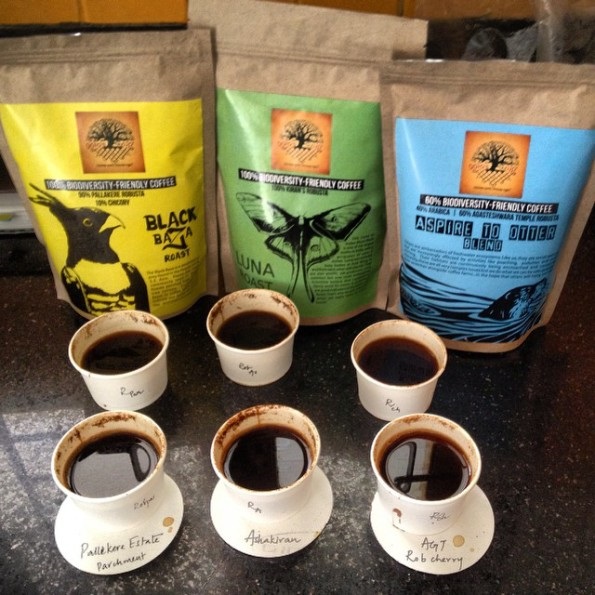In his article “Coffee Plantations in India blend History and Hospitality” writer Dan Packel describes the biodiversity that he and his wife witnessed as they walk through a coffee estate in Coorg- “Along the forest floor, cardamom plants and orange trees occasionally presented themselves. During her morning strolls around the edges of the plantation, Katy, armed with her “Pocket Guide to the Birds of the Indian Subcontinent,” spotted greater racket-tailed drongos, white-cheeked barbets and Malabar parakeets, among other species.”
If you like this picturesque description then let me tell you that you can contribute to it sitting at home. Meet Arshiya Bose founder of Black Baza Coffee, a venture that gives you a unique reason to drink coffee- conservation. Read on to know more about how you can conserve through your coffee.
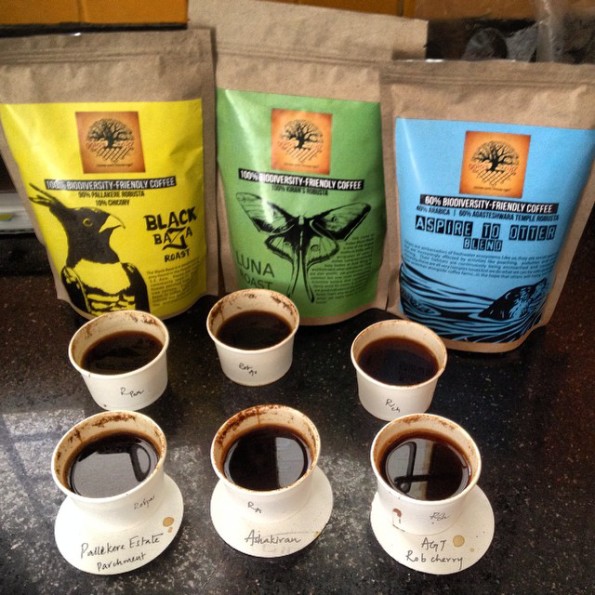
Before we talk about anything I am sure we all need to understand how the two C’s- coffee and conservation are related. I asked Arshiya how this interesting journey of hers began. “I am an environmentalist and spent almost 5 years studying the change in coffee production in India. Originally coffee in India was grown in forests under the shade of trees and is referred to as shade grown coffee. Regions where these coffee farms exist, are also areas that have dense forests and a rich wildlife. Coffee farms in such cases become corridors for wildlife to move between forest fragments. Over the last 20 years, a lot of research has been done on the impact of coffee farming in supporting wildlife. The problem is that the productivity of coffee is quite low when you practice shade farming. Hence, there was a natural transition towards removing trees from farms, and as a consequence, the coffee changed from shade grown to sun grown. This change is happening in India as well, but much later compared to the rest of the world. More and more farms across India are making this shift to the sun-grown coffee. A range of environmental impacts come about as a result of this transition. There is a loss of forest cover; there is a loss of biodiversity, climate change impact, and also an impact on the soil/ water quality on the farms.”
Arshiya completed her Ph.D. from the University of Cambridge and her research involved looking into incentive-based conservation models. Through the course of her research, she interacted with several coffee farmers to understand their perspective on this issue. “While doing my Ph.D., I spoke to many coffee farmers to try and understand what kind of support they needed if they had to revert to shade grown coffee. Lot of coffee farms are in the transition phase where they are switching to the sun- grown coffee. From these interactions, I understood that there was a need for an economic model which would incentivise the process of producing shade-grown coffee. The idea of creating a social enterprise came from the producers themselves. This how we decided to set up a coffee company, where we can sell coffee produced via biodiversity friendly farming practices.”
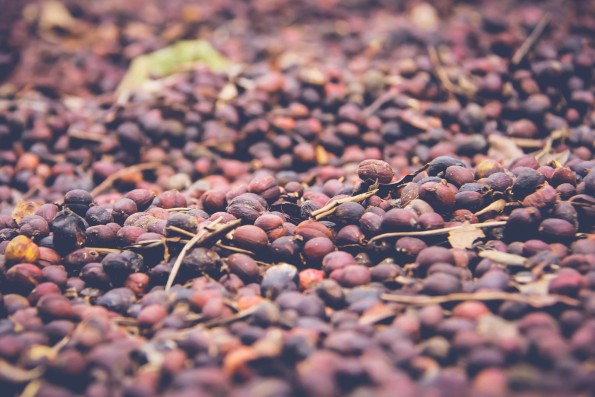
If you look at their website you will see that a cup of coffee from Black Baza Coffee entails a lot more. Yes, you get coffee produced by farming practices that have the highest environmental standards, but what you also get is coffee which is grown free of chemical pesticides and which you can trace back to the farm. Black Baza Coffee helps in reforestation, protects natural water bodies around these farms from harmful effluents, ensures a secure livelihood for the farmers and helps them in the continued quality production of great coffee. “We have conditional agreements with the farms that are a part of the Black Baza Coffee concept. Which means these farms must have a certain number of trees and a certain diversity of trees. They must also restrict the use of chemical pesticides and follow some other practices to meet our goals of biodiversity. In return Black Baza Coffee guarantees a buyback of their coffee, provides a premium on the market price of coffee, does long term contracts with growers and provides overall support. We have tried to establish a symbiotic relationship in doing so.”
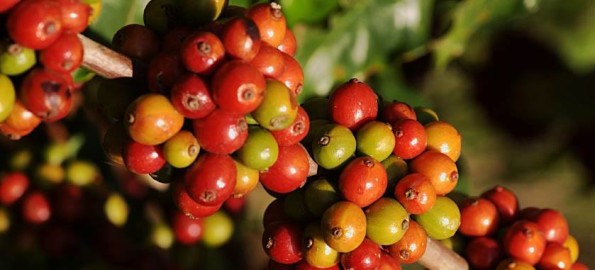
Let’s talk a little bit about the coffee shall we? “Currently, we sell three varieties of coffee- “The Otter friendly Coffee”, “Bird Friendly Coffee” and the “Moth friendly coffee”. Black Baza Coffee can be purchased across India through the website and a few other e-commerce portals. They can also be purchased through select stores where our coffee is displayed. We have also partnered with some cafes where people can try our coffees. We recently partnered with a café in Pune called Pagdandi, which is India’s first ethical coffee outlet. This is very special for us as we are always looking to find strategic partners who value our story and our principles.”
Black Baza Coffee places a lot of importance to consumers being able to trace their cup back to the farm. They even provide postcards so that consumers can share their coffee experience with the farmer. “One major issue with coffee globally is in the way the supply chain is set up. There is no room for market differentiation. A farmer who is very conscientious about his farming practice does not get recognition in the market price wise or visibility wise. We wanted to bring a rewards and recognition system into the process so that they get their due.”
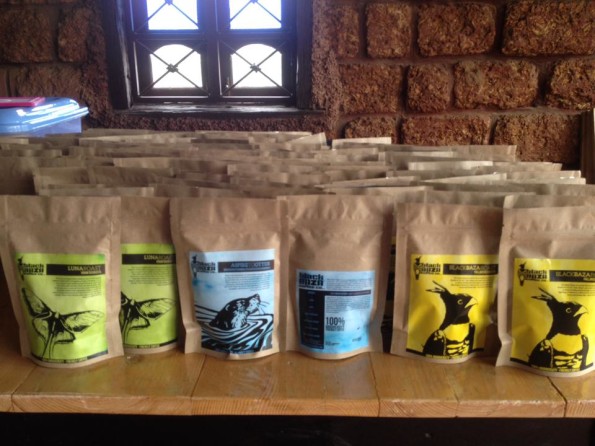
Commercial plantations of coffee in India go way back to the 18th century. In an industry this old with its set practices, bringing about any kind of change would require huge efforts. Arshiya shares some of the challenges she faced setting up Black Baza Coffee-“Coffee globally is very much about economies of scales and volumes. In India we have had over 200 years of coffee farming under our belt, which means many practices are followed for years. There is a fair amount of entry barrier. Black Baza Coffee is a very new concept and nothing like this has been tried before in the world. Our challenges revolve around the uncertainty of how people will embrace a concept like this. “
Was it a challenge bringing coffee growers on board? “Most of the people who started working with us knew me before through my Ph.D. research. So the venture started on a note of trust because they knew where this was coming from and what we were hoping to achieve. Many coffee growers have always nurtured this idea of a high-quality specialty coffee product made with the best growing practices. In many ways we have provided them with a platform and support system to do just that. We have given them the added advantage of being biodiversity friendly. As we add more coffee farms, we hope this mutual trust continues.
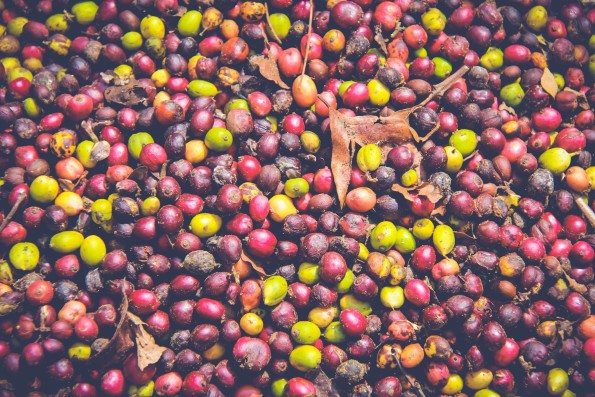
“On the other hand, we would also like consumers to understand our story and create awareness on biodiversity. This is what we are constantly trying to achieve through all the information that we provide on our website and through the events we conduct or participate in. Even the naming and packaging of our coffee is done keeping this in mind. Consumers who are inclined to the idea of sustainability have really liked our product and its approach. “
While tackling the issue of biodiversity Black Baza Coffee has also done a lot of work looking into its product quality. With the help of the Coffee Board, they conduct various tests to ensure that their coffee quality is a reason enough for consumers to make the switch.
Black Baza Coffee started with four farms in Coorg, and now they are expanding by adding farms from the Biligiriranga Hills. They are also trying to add a lot of smaller farms to help them build capacity.
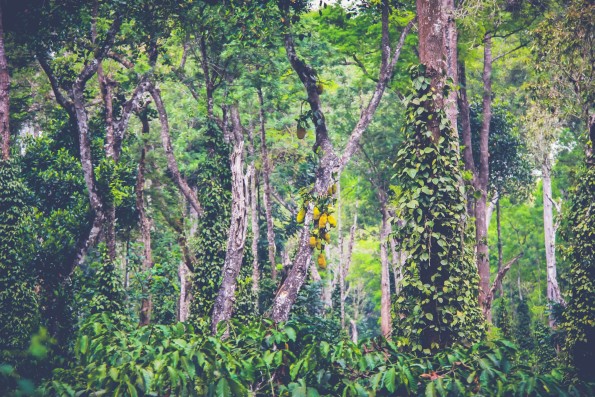
Arshiya started the groundwork for her venture in 2013 and Black Baza Coffee came into existence in 2015. Talking about her journey so far Arshiya says she is happy to see people respond well to their product and their goals, but measuring success is not that simple. Milestones for success at Black Baza Coffee are very different from other ventures marketing similar products. Being extremely devoted to their cause, Black Baza Coffee looks at the overall impact of its practices. “We cannot simply measure success based on the coffee sold. A lot of our time and resources go into looking at the impact from a biodiversity point of view. Coffee is a by-product of our larger goals and a means to achieve them. Such results take time and cannot be represented by crunching a few numbers. We hope to see the change we have envisioned, and we hope Black Baza Coffee will lead the way to implement similar concepts in other areas as well.”
Black Baza Coffee is a great example of how food-based ventures can act as platforms for bigger goals that impact the world we live in. Who would that thought that sometimes all it takes is getting a cup of coffee!
Visit their website to know more about their mission. Do stop by their Facebook page to stay updated on their events and products.
All Images Courtesy Of Black Baza Coffee
Black Baza Coffee Quick Facts
| Founder | Arshiya Bose |
| Concept | Coffee company that conserves forests, wildlife, and water by selling coffee |
| Delivery | Across India |
| Website | http://www.blackbazacoffee.com |
| Facebook Page | https://www.facebook.com/blackbazacoffee |
| Hot now | Subscriptions |
| For queries | Mail– team@blackbazacoffee.com |
